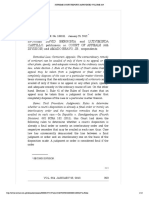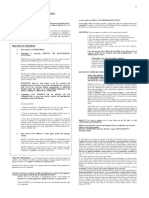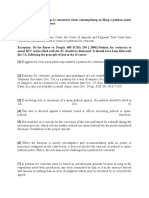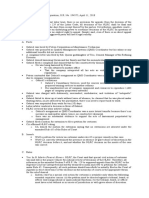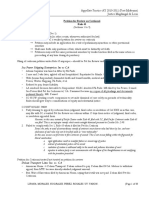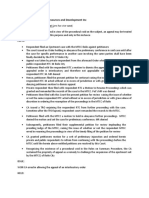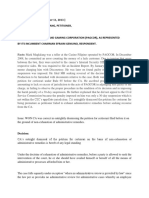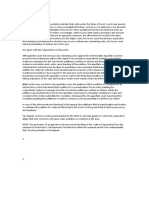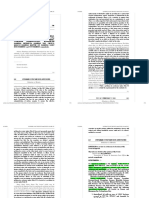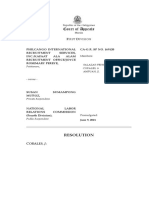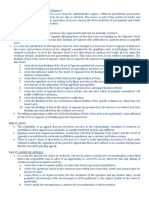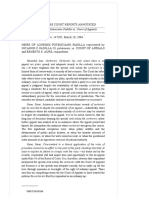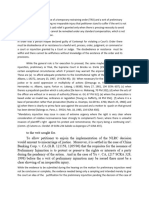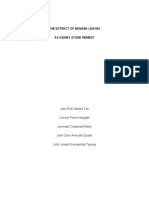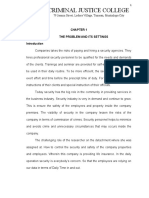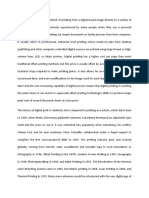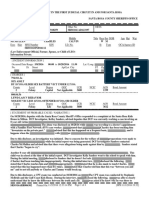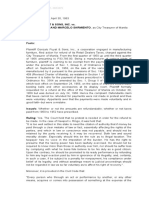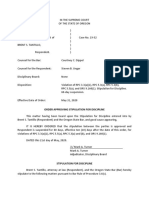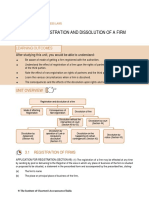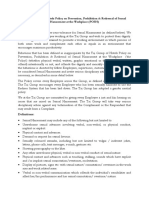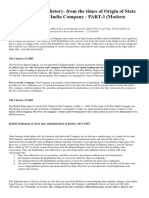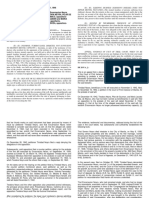0% found this document useful (0 votes)
83 views12 pagesHeirs-Of-Cabrera - Vs - Heirs of Jurado (On Procedural Issues)
The Supreme Court denied the petitioners' petition and affirmed the Court of Appeals' dismissal of the petition based on procedural defects. The Court found that the petitioners failed to establish any of the exceptions that would allow them to file a petition for certiorari despite having an available remedy of appeal. Specifically, the Court held that the petitioners did not demonstrate that the RTC committed grave abuse of discretion amounting to lack or excess of jurisdiction. The Court also held that this was not a case where relaxation of procedural rules was warranted to prevent a miscarriage of justice.
Uploaded by
ALDREW ENOCHCopyright
© © All Rights Reserved
We take content rights seriously. If you suspect this is your content, claim it here.
Available Formats
Download as DOCX, PDF, TXT or read online on Scribd
0% found this document useful (0 votes)
83 views12 pagesHeirs-Of-Cabrera - Vs - Heirs of Jurado (On Procedural Issues)
The Supreme Court denied the petitioners' petition and affirmed the Court of Appeals' dismissal of the petition based on procedural defects. The Court found that the petitioners failed to establish any of the exceptions that would allow them to file a petition for certiorari despite having an available remedy of appeal. Specifically, the Court held that the petitioners did not demonstrate that the RTC committed grave abuse of discretion amounting to lack or excess of jurisdiction. The Court also held that this was not a case where relaxation of procedural rules was warranted to prevent a miscarriage of justice.
Uploaded by
ALDREW ENOCHCopyright
© © All Rights Reserved
We take content rights seriously. If you suspect this is your content, claim it here.
Available Formats
Download as DOCX, PDF, TXT or read online on Scribd
/ 12




